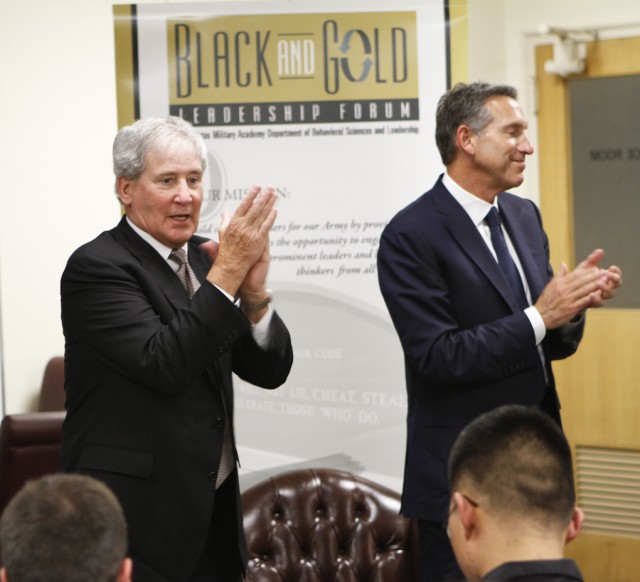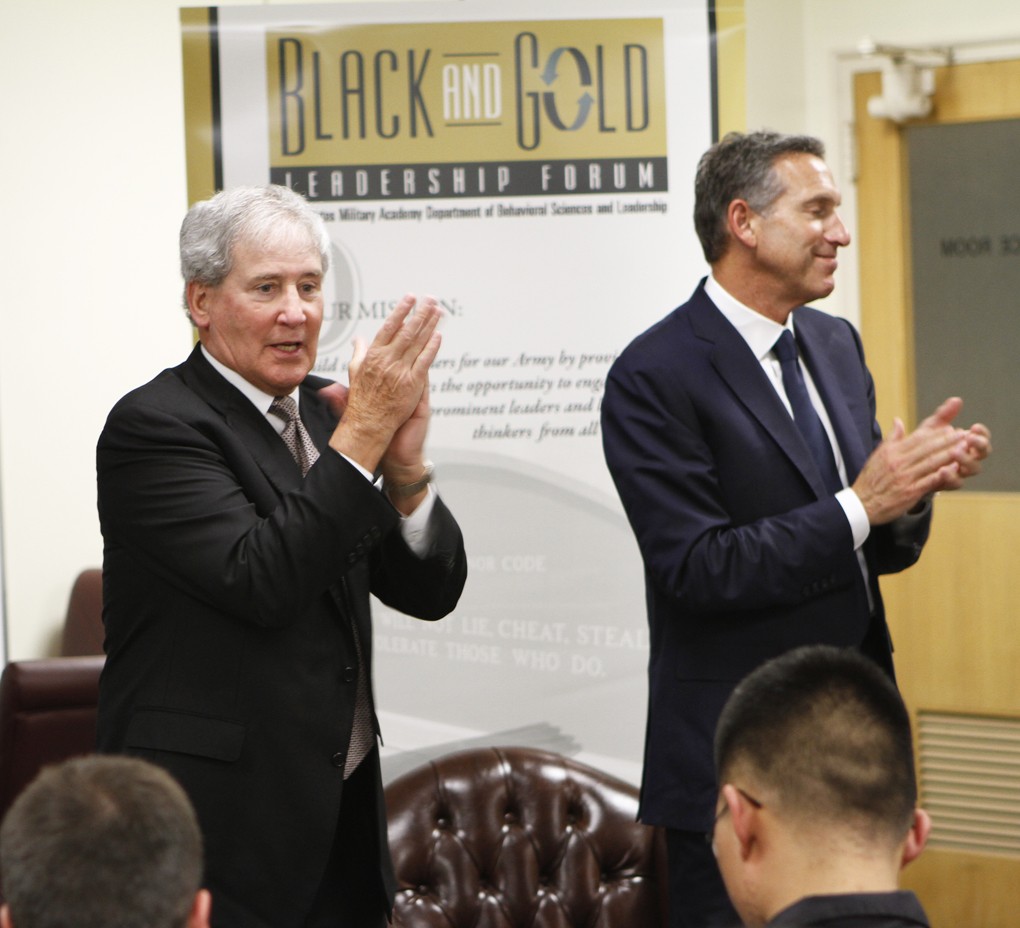
WEST POINT, N.Y. (May 11, 2011) -- In its heyday, Starbucks controlled the coffee shop market like a juggernaut-rising from every street corner and permeating malls, college campuses and highway rest stops. It became part of the everyday vernacular to order a "venti" instead of a large and, not from just any server behind the counter, but from a barista, no less. The Starbucks experience became an international phenomenon and its president and CEO Howard Schultz led the coffee revolution.
In 2000, Schultz took an eight-year leave as CEO, but when the economy went south and stock prices plummeted nearly 50 percent, Schultz returned to his leadership role.
Now celebrating its 40th anniversary, the coffee house chain is enjoying new growth. During a Black and Gold Leadership Forum May 6, Schultz shared some lessons learned with a group of cadets on their final day of class this semester.
Schultz admitted his leadership approach is unorthodox at times, like when he temporarily shut down businesses across the country for customer service training or when he conducted a business meeting in New Orleans at a cost of $32.5 million to reach out to his store managers.
"We had the idea to create a meeting ... not a convention, not a rally, not a celebration, but a meeting to create alignment, understanding and, most importantly, a renewed level of understanding," Schultz said. "When I stood up to the board and other people who had great concern about spending that kind of money at this time, the question I asked them was, 'Tell me what better investment I could make then the investment in our people' There was no answer other than it was the right thing to do."
Having been the entrepreneur who built a dynasty from the ground up to the business leader weathering corporate crisis in a financial windfall, Schultz has learned from both success and
failure.
"A leader has to be absolutely decisive," Schultz said. "A leader has to provide a vision of hope and aspiration."
Cadets also heard from Bill Campbell, Intuit, Inc. chairman. During Campbell's tenure, Intuit solidified its position as the clear leader in tax, personal finance and small business accounting software, like Turbo Tax. During that time, the company invented a new class of web-based finance businesses delivered through Quicken.com, Intuit's website.
Campbell was also head football coach for six years at Columbia University before entering the tech industry. He described two types of business leadership sure to have meaning to the future Army officers.
"There's the one I call 'peacetime leadership' where the wind's at your back and you can grow something that customers want, and that it's sustainable; and then there's times you have to be a wartime general where the company struggles and you lead through difficult times," Campbell said.
Having spent the day at West Point and learning about cadet life, Campbell was impressed and proud of what he saw.
"The small things that Howard and I do in leading our companies and making difficult decisions that have a lot to do with our employees and shareholders pale in comparison to what you have to face," Campbell told the cadets. "It's humbling talking to you about leadership."

Social Sharing